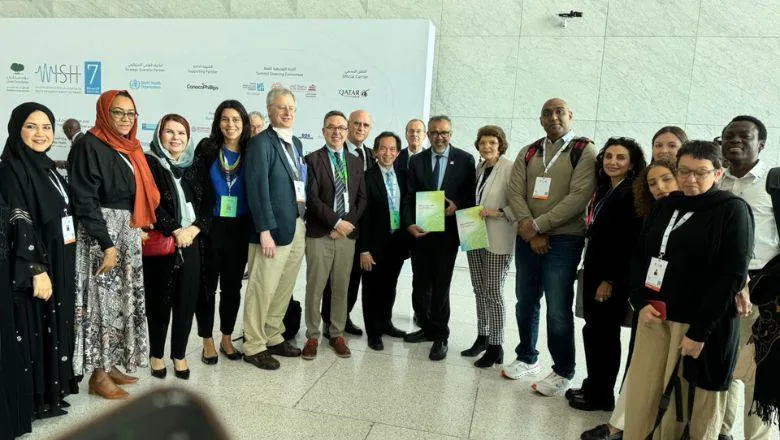Palliative care is an overlooked global health priority. We need substantial change, improving access and tackling inequities in palliative care globally to reduce preventable suffering. Without urgent, coordinated action, the world’s most vulnerable people, those in pain, those who are dying, and children with debilitating or incurable conditions will continue to suffer.
Professor Richard Harding, Interim Exec Dean
28 November 2024
Palliative care researchers lead on new WHO report
The report was commissioned for the World Innovation Summit for Health 2024

Researchers from the Florence Nightingale Faculty of Nursing, Midwifery and Palliative Care and the Cicely Saunders Institute were lead authors on a specially commissioned report entitled ‘Palliative Care: how can we respond to 10 years of limited progress?’
Professor Richard Harding, Professor Katherine Sleeman, Dr Anna Peeler and Dr Oladayo Afolabi worked alongside researchers at the WHO, Imperial College London and WISH on the report.
It describes the limited progress made since the 2014 World Health Assembly Resolution 67.19 on palliative care. This originally called for global strengthening of quality, accessible palliative care service for people of all ages as an essential component of universal health coverage.
The report warns that unless urgent, evidence-informed, coordinated action is taken to address persisting and worsening inequities in access to and quality of palliative care services globally, the benefits of palliative care will not be achieved to meet the growing demand. By 2060, the number of people dying with serious health-related suffering across all age groups is expected to increase by 87 per cent.
With ample case studies and examples of how palliative care is implemented across the globe, the report makes several recommendations including:
- Every country should have an evidence-based national palliative care policy that includes sustainable funding for services.
- Researchers should focus on developing and adapting models of palliative care specific to countries’ unique cultural, situational and socioeconomic contexts.
- Governments should ensure that all essential medicines are available for those who need them.
- Universities and health systems should provide evidence-based, basic palliative care education and training for all non-specialist healthcare workers.
- Governments should improve access to palliative care services equitably for people of all ages.
‘Palliative Care: how can we respond to 10 years of limited progress?’ was launched at The World Innovation Summit for Health (WISH) with Professor Richard Harding joining a panel of speakers to discuss the urgent need to implement palliative care based on the report.
Read the full paper here.
In this story
Related departments
- Florence Nightingale Faculty of Nursing, Midwifery & Palliative Care
- Department of Adult Nursing
- Department of Child & Family Health
- Department of Mental Health Nursing
- Department of Midwifery
- Cicely Saunders Institute of Palliative Care, Policy & Rehabilitation
- Division of Methodologies
- Digital Health and Applied Technology Assessment
- Division of Care in Long Term Conditions

